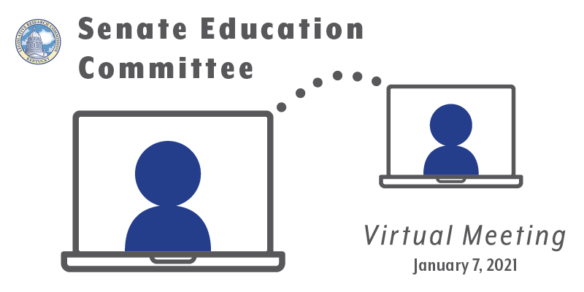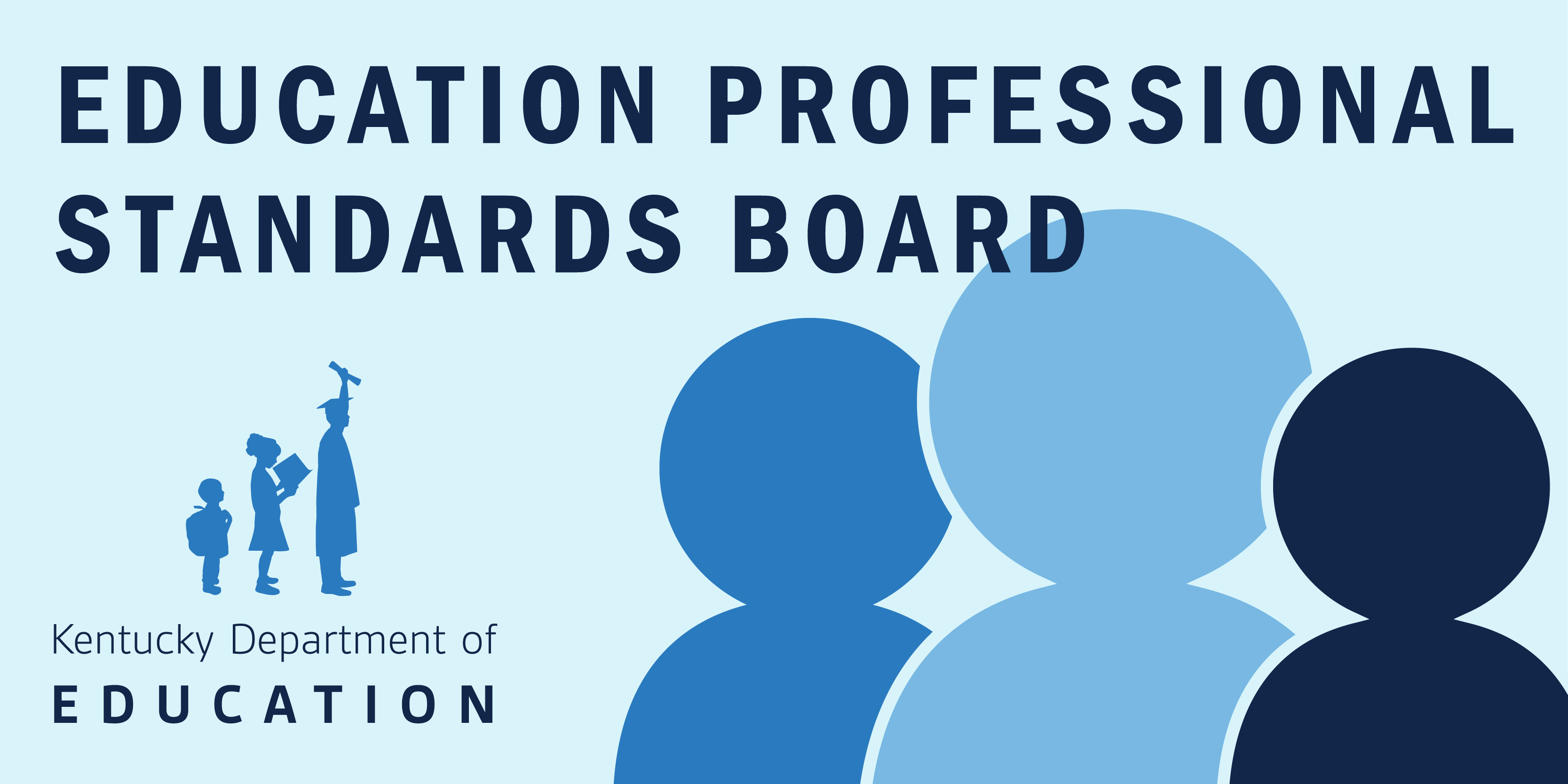
- Teachers commented on successes, innovations and struggles from virtual learning.
- Four educators talked about the positive and negative results of COVID-19-driven technological changes.
By Jim Gaines
jim.gaines@education.ky.gov
Four Kentucky teachers addressed the Kentucky Senate Education Committee on Jan. 7 regarding the impact of remote learning during the COVID-19 pandemic.
Sen. Max Wise, R-Campbellsville, the committee chair, said each teacher had been asked to speak about one success they’ve seen during the fall 2020 semester, one innovation they’re using in the classroom, and the primary struggle they expect to face in spring 2021.
“I feel like one of biggest successes that I’ve seen has been watching and being inspired by other teachers across the Commonwealth,” said Donnie Piercey, a 5th-grade teacher at Stonewall Elementary School (Fayette County) and the 2021 Kentucky Teacher of the Year.
Teachers still are working after school hours, sometimes for students they haven’t yet seen face-to-face, he said.
Educators must concentrate on how best to serve students in a virtual environment, Piercey said. His career already focused on how to use technology to redefine and enhance learning. But even so, “boredom set in” after a couple of weeks of online-only education, so he asked his students how to make it more interesting.
“Virtual reality,” they said. Piercey found several virtual reality apps that would work on almost any internet-connected device, turning textbook lessons into immersive experiences, he said.
The changes wrought by COVID-19 have brought to light many inequalities in education that need to be addressed, Piercey said. Schools worked hard to get students connected virtually and make the online transition smooth. But he wonders how many of those innovations will remain in place when the pandemic ends.
Most teachers have mastered the technical basics of online learning, but they must build and maintain relationships with students as the nature of education is redefined, Piercey said.
Angela Clay, an 8th-grade social studies teacher at W.E.B. DuBois Academy (Jefferson County), said it was a struggle to implement new Kentucky Academic Standards for Social Studies.
She and others had to teach through a lot of conversations they weren’t prepared for, such as discussions of racial justice after the killings by police of Breonna Taylor and other Black people, and the Jan. 6 storming of the U.S. Capitol by several thousand supporters of President Donald Trump.
But teachers came together to collaborate and solve problems, Clay said, and she’s sure they will rise to the challenge of teaching young people to understand democratic principles.
The biggest success she saw was in teaching a lesson on the American Revolution. Her students were inspired by the story of Crispus Attucks, a Black man killed in the Boston Massacre, and some Kentucky legislators soon will receive letters Clay’s students wrote following that lesson, she said.
Casey Young, a social studies teacher at Taylor County High School, said he asked several colleagues for their experiences. A success they reported was in seeing students and their guardians take more personal responsibility for education, he said.
Young is communicating more than ever with parents, and he hopes that continues.
As an innovation, technology has allowed teachers and students to resume one-on-one learning, Young said. In-person learning is vital, but students can be successful virtually too, he said.
Students who do well in person tend to do well through virtual learning, but students who struggle during regular classes also do poorly online, Young said.
A related struggle is the need for consistency, he said. That is vital for students to focus, but switching back and forth between in-person and online classes can cause confusion for students and teachers alike, Young said.
Allison Slone, a special education teacher at McBrayer Elementary School (Rowan County), and the first active full-time teacher on the Kentucky Board of Education (KBE), said she primarily teaches students with behavioral disorders.
Many of her students who had trouble fitting into in-person classroom settings have begun to thrive through virtual learning because they can get comfortable and take breaks when needed, she said. They are participating more and getting more one-on-one time, Slone said.
“Their triggers are almost nonexistent in the virtual setting,” she said.
For Slone, the flexibility of virtual learning helps her schedule individual time with students, and their parents often participate as well.
But she agreed that in-person learning is necessary, as her students need to learn how to handle uncomfortable social situations.
Slone’s social media group Kentucky Teachers In The Know shares resources and ideas among its nearly 23,000 members. Its sister group, Kentucky Parents In The Know, has lessons uploaded for its 9,500 members to use at home.
She has learned to use Google Classroom and associated apps like Flipgrid.
“There are hundreds and hundreds of innovations, and I’ve seen teachers create their own,” Slone said.
A difficulty she has seen is that the system for judging success in virtual learning is unfair, heavily influenced by inequalities in technology access. She said teachers, students and parents all need help and training to deal with those problems.
The accountability system should be revamped to focus on success; technology and access must be updated; and Kentucky should fully fund its education system, she said.
She said the pandemic has only highlighted these issues and the need to fix them, and “there’s never a better time than now.”
Questions
Wise asked Young if virtual learning academies should be created and if that should happen, should they be created at the local or statewide level.
Young said if virtual academies are created, that must be done by local districts, which can better identify students who can be successful in online-only classes.
Sen. Jimmy Higdon, R-Lebanon, asked about availability and affordability of broadband internet access and the percentage of a district’s students who are logging in daily.
Slone said more than 90% of Rowan County students are participating virtually, but internet access is a definite problem – not just for students, but for teachers, too.
There is only one broadband provider in her area, so when its network is down, there is no alternative, she said. The state needs to fund wireless access, treating it as a vital utility, Slone said.
Young mentioned in his remarks that virtual education meant the end of snow days, and Sen. Stephen West, R-Paris, asked what he thought future “snow days” might look like.
Young said even during virtual learning, such days could be good for family time or catching up on lessons, but the flexibility of the internet makes teaching content available anytime. During days off, teachers could schedule online hours to offer individual help, he said.
Sen. Stephen Meredith, R-Leitchfield, commented that legislators’ top priority must be establishing statewide broadband access.
Sen. Danny Carroll, R-Paducah, brought up concerns that child abuse may be overlooked because teachers aren’t seeing students in person. He asked if teachers have gotten any training on how to spot cues of trouble online.
Clay said her online sessions include a silent “thumbs up” or “thumbs down” on how students are doing, and a negative reaction leads to a scheduled private conversation.
Piercey said his school has set up a separate page for students to check in, and teachers can reach out to students they haven’t heard from recently.
Slone said it’s time to recognize that spotting abuse cannot fall primarily on teachers. While they’re sensitive to how their students are doing, children’s neighbors and the community as a whole, need to step up involvement and vigilance, especially during periods of social isolation.



Leave A Comment